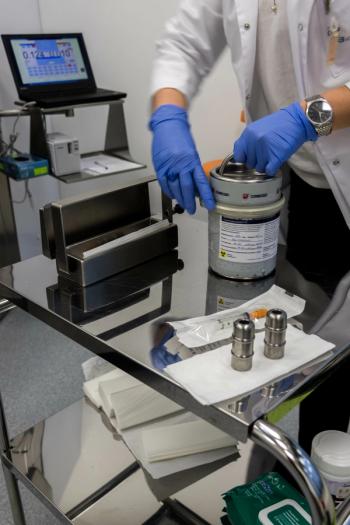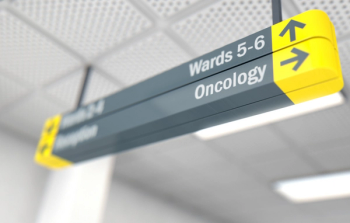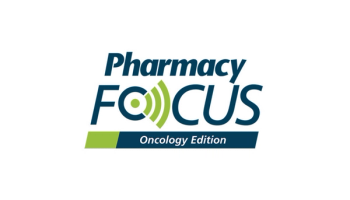
Follow Pharmacy Times®’ live coverage of the Hematology/Oncology Pharmacy Association (HOPA) Annual Conference in Phoenix, Arizona from March 29 to April 1, 2023.

Follow Pharmacy Times®’ live coverage of the Hematology/Oncology Pharmacy Association (HOPA) Annual Conference in Phoenix, Arizona from March 29 to April 1, 2023.

Improvements in progression-free survival were seen in patients with advanced or recurrent endometrial carcinoma regardless of mismatch repair status.

Ribociclib plus endocrine therapy demonstrates a reduction in the risk of disease recurrence in patients with HR+/HER2- early breast cancer.

Key lifestyle risk factors for chronic diseases and cancers include tobacco use, poor nutrition, lack of physical movement, and obesity.

Akram Hussein, PharmD, MBA, BCNP, discusses the treatment process when treating a patient with prostate cancer with a radiopharmaceutical.

Axicabtagene ciloleucel demonstrated a 2.5-fold increase in individuals with relapsed/refractory large B-cell lymphoma who were alive at 2 years and did not experience either cancer progression or require the need for additional cancer treatment.

Although community oncology has grown, maintaining services for patients is an ongoing challenge.

Presenter at the 2023 Community Oncology Alliance meeting notes that oncology has become more of a duality between molecular and genetic subsets, leading to huge developments in targeted and personalized care.

In addition to improving working conditions for current employees, burnout must be addressed in order to recruit and retain new employees and alleviate understaffing.

Since 2014, 10 immunotherapies have been approved by the FDA, including 6 CAR T-cell therapies and 4 BiTE therapies.

Among patients with lung cancer, approximately 20% have the earliest stage of disease but are still dying of metastatic lung cancer within about 5 years.

Drugs such as pembrolizumab, sacituzumab govitecan, and datopotamab deruxtecan all have growing bodies of evidence illustrating which patients with cancer are most likely to benefit and in which settings.

Research has even shown that cancer diagnosis can be significantly improved using AI, with real-time data updates, personalized attention, and ultimately better results at lower costs.

Despite tensions that can occur, building relationships with health systems and finding opportunities to collaborate is crucial to improve cancer care.

The treatment shows positive results in metastasis-free survival for men with non-metastatic hormone-sensitive prostate cancer, Pfizer and Astellas announce.

Shiela Plasencia, director of practice support at the Community Oncology Alliance, discussed COA’s new tool to help practices prepare for the Enhancing Oncology Model.

3D biofabrication models reflect increasing global awareness of the ethics of preclinical studies and an increased need for determining therapeutic efficacy differences.

Nick Ferreyros, managing director of policy, advocacy, and communications at the Community Oncology Alliance, discussed the Alliance’s efforts surrounding PBMs and 340B reform.

Retifanlimab-dlwr (Zynyz; Incyte) was granted FDA accelerated approval for metastatic or recurrent locally advanced Merkel cell carcinoma.

There is no single thing that can prevent all cancer risk, but there are 6 pillars of lifestyle that people can adopt to best prevent the disease.

Blinded arms of the study will continue to evaluate the combination therapy with docetaxel vs docetaxel alone, Merck says.

The portfolio of oral oncology products has evolved over the past few years and so has the traditional model of distribution.

For the management of ovarian cancer, it has been observed in both cellular and animal models that curcumin suppresses cell proliferation and promotes apoptosis.

Therapy effectively treats cells harboring HR deficiencies, including those of specific types of ovarian, breast cancers.

Most patients used nonproprietary drugs, which may contribute to the reduction of out-of-pocket costs for the treatment of invasive breast cancer.

This month, we spoke with Danielle Roman, PharmD, an oncology clinical pharmacy specialist with Allegheny Health Network.

The treatment shows an acceptable toxicity profile and no new adverse events, according to results of analysis.

Niraparib with abiraterone acetate could be the first dual-action tablet for patients with metastatic castration-resistant prostate cancer and BRCA mutations.

The kit is now approved in the US to select patients with metastatic prostate cancer who are candidates for the only FDA-approved PSMA-directed radioligand therapy.